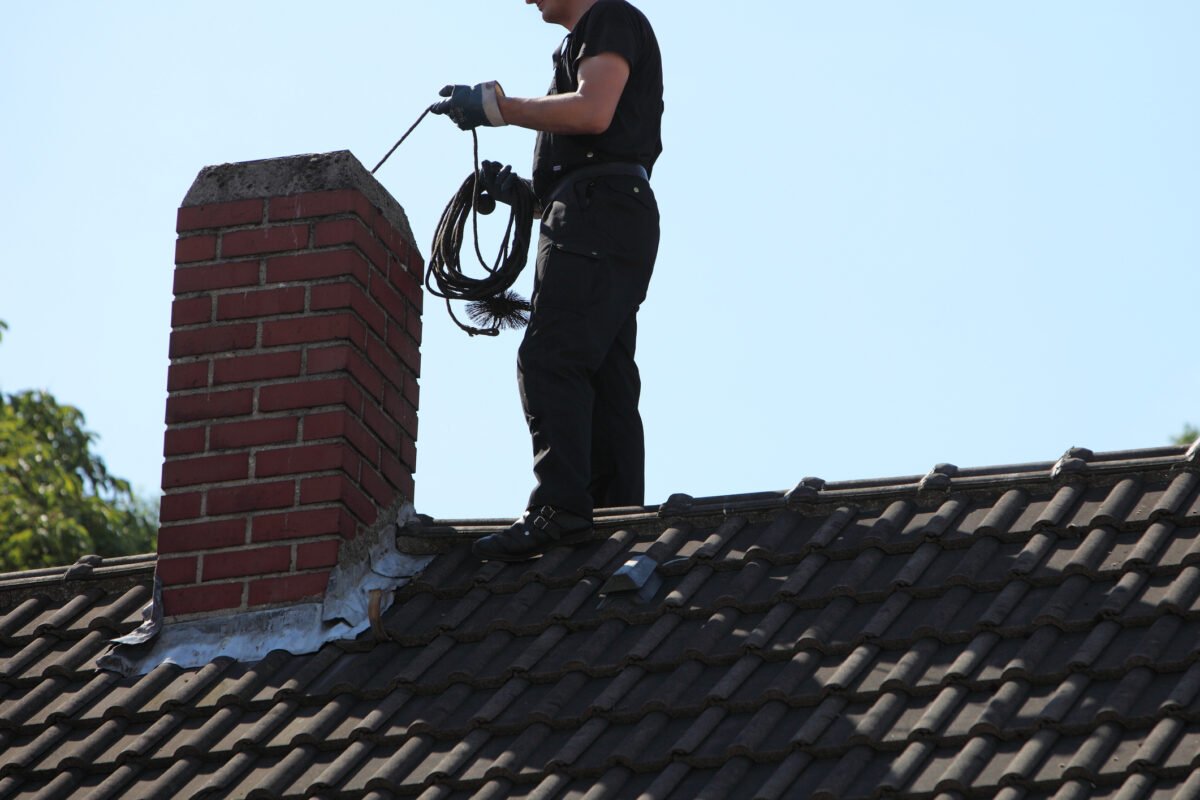Introduction
When it comes to protecting your home, few things are as important as a properly functioning chimney. Beyond providing warmth and comfort, a chimney helps vent dangerous gases, improves heating efficiency, and safeguards your family from potential hazards. Unfortunately, many homeowners overlook regular chimney care until costly problems arise. That’s why scheduling a professional chimney inspection is one of the smartest preventive steps you can take.
Why Every Home Needs Regular Chimney Inspections
A chimney may look fine from the outside, but inside it could be hiding dangerous problems. Regular chimney inspection ensures early detection of issues that could otherwise lead to fires, expensive repairs, or even health risks from carbon monoxide leaks.
Skipping inspections can result in:
- Creosote buildup, the #1 cause of chimney fires
- Cracks or damaged masonry that weaken the structure
- Clogged flues from nests, leaves, or debris
- Poor airflow reducing energy efficiency
- Hidden leaks that spread water damage into walls and ceilings
Key Features of Professional Chimney Services
When you hire a certified chimney professional, you’re not just getting a quick glance at your system—you’re investing in your home’s safety. Here’s what sets professional inspections apart:
- Affordable Pricing – Upfront costs with no hidden fees
- Certified Technicians – Licensed experts following strict safety standards
- Annual Maintenance Plans – Consistent care that prevents emergencies
- Fire Safety Assurance – Checks that minimize fire and gas hazards
- Chimney Cap & Masonry Repairs – Solutions that extend chimney lifespan
- Real Estate Inspections – Trusted assessments for buyers and sellers
- No-Mess Guarantee – Respectful service that leaves your home spotless
Chimney Inspection Checklist: What to Expect
During a chimney inspection, professionals follow a detailed checklist to ensure nothing is overlooked. Here’s what typically happens:
- Examine interior and exterior masonry for cracks, gaps, or deterioration
- Inspect chimney liner for damage or missing sections
- Check for creosote buildup and determine cleaning needs
- Assess the chimney cap, crown, and flashing for wear or leaks
- Test draft and airflow to confirm proper ventilation
- Look for blockages from nests, leaves, or debris
- Inspect fireplace or stove connection points
- Provide a detailed report with recommendations for repairs or cleaning
How Often Should Chimneys Be Inspected?
The National Fire Protection Association (NFPA) recommends that homeowners schedule a chimney inspection at least once a year. However, usage patterns may require more frequent checks:
- Once per Year – For most households
- Twice a Year – If using a wood-burning stove or fireplace daily
- After Major Events – Chimney fires, storms, or noticeable performance changes
Routine inspections keep your chimney safe, efficient, and ready for use year-round.
Benefits of Hiring Certified Chimney Professionals
While DIY checks may seem appealing, only certified experts have the training and tools to detect hidden problems.
- Enhanced Safety – Reduced fire and gas risks
- Improved Efficiency – Heating systems work more effectively
- Cost Savings – Small issues fixed early prevent expensive repairs
- Reliable Service – Inspections meet professional safety standards
Pricing Table for Chimney Inspection & Maintenance in Apache Junction
| Service Type | Price Range | Notes |
| Basic Chimney Inspection | $100 – $150 | Visual and external checks |
| Level 2 Chimney Inspection | $200 – $350 | Camera-assisted, detailed evaluation |
| Chimney Sweep & Cleaning | $150 – $300 | Removes creosote and blockages |
| Chimney Cap Installation | $120 – $250 | Protects against debris and animals |
| Annual Maintenance Plan | $250 – $400/year | Covers inspection & preventive care |
FAQs
Q1: How long does a chimney inspection take?
Most inspections take between 45 minutes and 1.5 hours.
Q2: What’s the difference between Level 1 and Level 2 inspections?
Level 1 is a visual check, while Level 2 includes cameras and a detailed interior review.
Q3: Do unused chimneys still need inspections?
Yes. Even unused chimneys can suffer from weather damage or animal nesting.
Q4: Can a chimney inspection really prevent fires?
Absolutely. Inspections detect creosote buildup and other fire hazards early.
Q5: When’s the best time to schedule an inspection?
Spring or summer is ideal, leaving time for any repairs before winter use.
Conclusion
A chimney may not always be top of mind, but neglecting it can lead to serious safety hazards and expensive repairs. Following a professional chimney inspection checklist ensures your system is safe, efficient, and ready whenever you need it.
Don’t wait until problems surface. Take control of your home’s safety today book your chimney inspection service in Apache Junction, Arizona, and keep your family protected all year long.
Read more Chimney sweep

